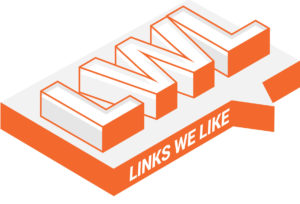LINKS WE LIKE #8

Politics and Governance
- How Cities Score -The Economist (@TheEconomist)
CityScore, a new scoring system that combines 24 different city metrics, is being used by cities governments across America to improve city planning, engage citizens, and provide better services. Exemplified by the city of Boston, the push to create “smart cities” is introducing a new, active role for cities to fill as better users of local data ecosystems.
- Future of UK Economic Statistics Set Out at Imperial -Deborah Evanson, Imperial College London (@imperialcollege)
The Data Science Institute at the Imperial College of London was recently launched in the UK as a solution for Britain’s complex and changeable economy, which is no longer adequately represented by current statistics. As technology advances and we enter the digital revolution, Big Data analytics must be harnessed to appropriately capture all the activity of Britain’s modern economy.
Peacebuilding and Violence
- The Top Ten Data Sources of Data For International Development Research -Joseph Holden, The Guardian (@guardian)
This article outlines data sources that make international development research more efficient, productive, and simpler. The databases listed are made up of a wide range of resources, each with their own best uses and challenges.
- Learning From Location– Laura Adler, Harvard Kennedy School Data-Smart City Solutions (@DataSmartCities)
As smartphone ownership in America continues to grow, the use of location data is emerging as a valuable source for enhancing city services. Leveraging location data from social media, passive apps, and citizen reporting can be beneficial for a variety of sectors including crime prediction, public health, and other applications to maximize urban governments.
Climate Change and Resilience
- Data Mining Reveals the Four Urban Conditions That Create Vibrant City Life -Emerging Technology from the arXiv, MIT Technology Review (@arxivblog) (@techreview)
A new approach to gather urban data has been developed to give an empirical background to Jane Jacob’s theories outlined in The Death and Life of Great American Cities and relate them to the vitality of city life. Through a collaboration of new databases, census data, land use data, geographic data, and call detail records across six cities, this new evidence-based techniques is ushering in a new wave of city planning.
- Visualizing Urban Fragility -Robert Muggah, United Nations University Centre for Policy Research (@igarape_org) (@UNUniversity)
New data visualization research from the Igarapé Institute, the United Nations University, The World Economic Forum, the World Bank, and SecDev, has identified the drivers of city fragility in order to answer the question: which cities are most fragile? Indicators such as underdevelopment, armed conflicts, population growth, and violence, are some of the correlates the visualizations use to show the many ways that a city may be classified as “fragile.”
Data Ethics and Literacy
- Big Data, Ebola Data, + Responsible Data -Willow Brugh, Responsible Data Forum (@willowbl00)
A new view about the ethical responsibilities in data use, specifically in light of the Ebola response, argues that practitioners also have a legal responsibility in handing data. The article overviews a call between the engine room, O’Reilly, and Aspiration with other experts to address the legal concerns of call detail records and their handling during the Ebola crisis across the themes of data sharing, anonymization, contact tracing, and consent.
Funder and Partner News
- Global Patterns of Human Synchronization -Alfredo Morales, Viabhav Vavilala, Rosa Benito, and Yaneer Bar-Yam, Physics arXiv (@NECSI) (@arxivblog)
This research analyzes Twitter data to understand the underlying dynamics of social systems. Researchers show that urban areas display cyclic contraction and expansion linked to social cycles, and identify patterns of synchronization between social activities and dependencies among the actions of individuals that shape collective behavior in cities.
[/x_text][/x_column][/x_row][/x_section]


![M002 - Feature Blog Post [WEB]](https://datapopalliance.org/wp-content/uploads/2025/10/M002-Feature-Blog-Post-WEB.png)





